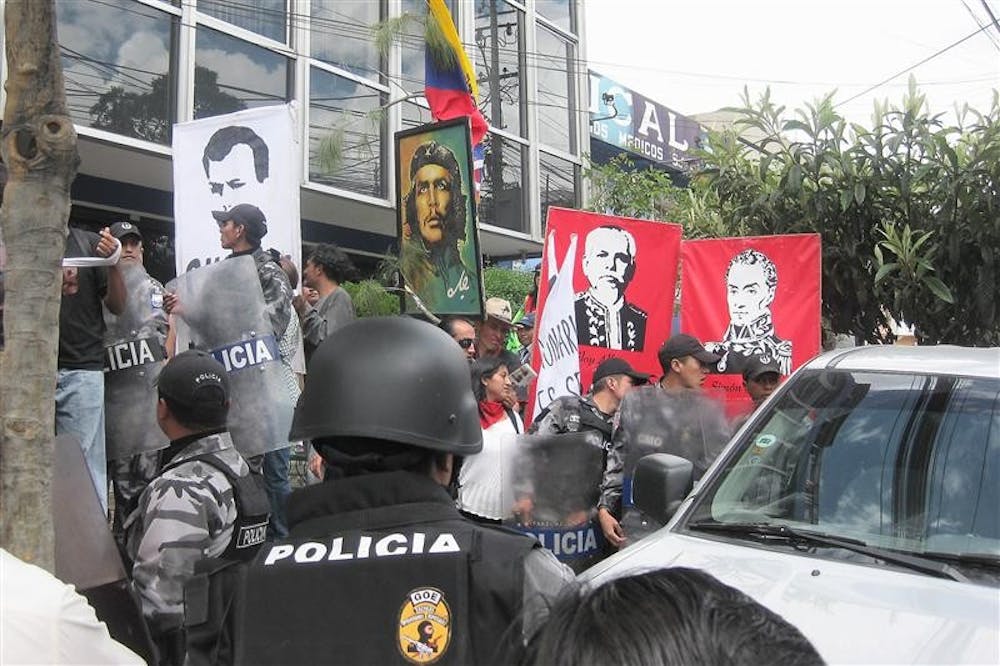QUITO, Ecuador – The elections for the Andean Parliament, an advisory body for Bolivia, Colombia, Ecuador, Peru and Venezuela, took place for the Ecuadorian representatives last Sunday in Quito, Ecuador.
Turnout, because of obligatory voting laws that fine citizens $45 for not voting, was high as always, but so was voter apathy. Many people believe the Andean Parliament is a powerless, unnecessary bureaucratic institution.
With voters disinterested in the elections, attention turned to another high-profile, politically charged case in the Ecuadorian capital the next morning.
Rafael Correa, the current socialist president of Ecuador, has been pushing the country more and more in line politically and economically with Venezuela’s Hugo Chavez and Bolivia’s Eva Morales and less in line with nearby neighbor Alvaro Uribe of Colombia.
As a liberal with socialist allies, Correa now has to answer some important questions in regard to one of his former cabinet members.
Former Ecuadorian Assistant Secretary for Policy Coordination Jose Ignacio Chauvin, a one-time cabinet member for President Correa, has come under fire for his alleged ties with Colombian guerrilla group FARC (Revolutionary Armed Forces of Colombia). The U.S. Department of State designated FARC a terrorist organization in 2004.
Chauvin was arrested in January by Judge Zoila Alvarado, who accused him of receiving political funding from the Ostaiza brothers, who were convicted of coordinating a network of drug-trafficking within northern Ecuador and southern Colombia.
Because Chauvin was a member of the cabinet during Correa’s first presidential term, Correa is now wont to remove himself from any association with Chauvin in a country where association with the FARC is akin to political suicide.
On Monday, Chauvin was brought before the five members of the Transparency Commission of Ecuador at the National Higher Education Committee (Conesup) to answer questions related to the bombing of a FARC facility by the Colombian government on Ecuadorian soil in March 2008 that led to the death of FARC commander Raul Reyes.
Chauvin admitted to meeting with Reyes, court reporters said from the closed courtroom. But this admission does little to solve the underlying problems related with FARC in Ecuador and Colombia, nor does it prove or disprove Chauvin’s innocence.
“(Jose) Chauvin is innocent, and this whole case was concocted by the conservative elements within the country,” Chauvin’s brother said, who was standing outside the Conesup building in northern Quito on Monday.
Another supporter of Chauvin who would only give his name as “Belem” merely said over and over again, “Innocent.”
Meanwhile, protestors carried posters of Che Guevara, and banners across the street sported the phrase “Free Chauvin” as Chauvin was accompanied into the police truck and taken back to jail.
The political saga that has stunned this nation and caused problems between Colombia and Ecuador continues.
Tensions rise over Andean election

Get stories like this in your inbox
Subscribe



